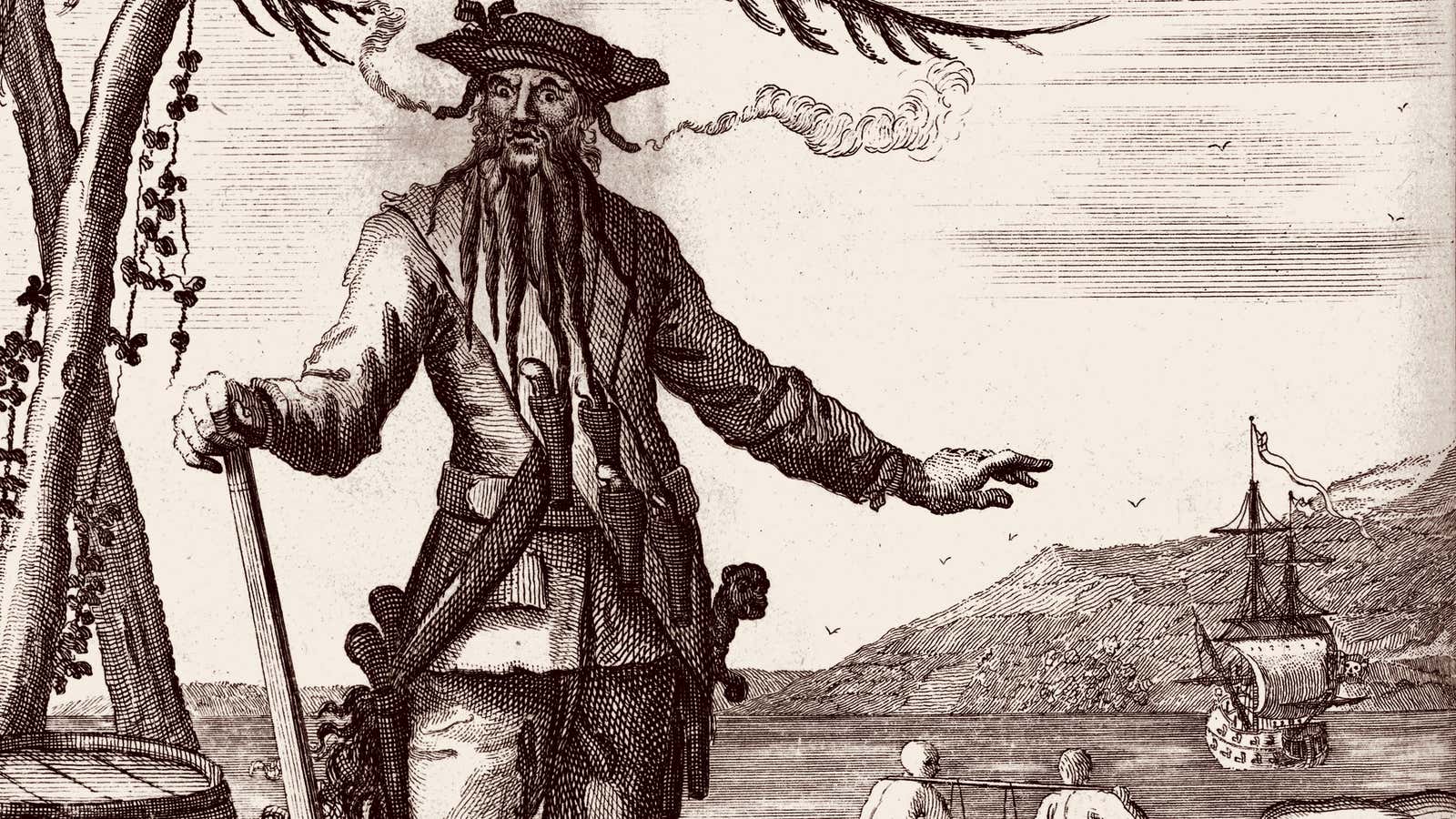The pirates of yore didn’t care about ownership rights. They took to the high seas and stole what they pleased from vessels unlucky enough to encounter them. No one is better known for such roguery than Edward Teach, aka the pirate Blackbeard, “the most notorious of sea robbers.”
That’s why it’s especially ironic that his stolen vessel, Queen Anne’s Revenge, is at the center of a copyright case being argued at the US Supreme Court on Nov. 5. The pirate would surely be amused to know that three centuries after that ship was wrecked in 1718 off the coast of North Carolina, there’s a fight between a production company and the state over the ownership of images of the bateau he stole and abandoned.
Blackbeard was an 18th-century British soldier gone bad. He became a pirate shortly after the end of Queen Anne’s War in 1714, and records show that by 1717 he was was operating in the Americas with other pirates. That year, in the Caribbean, Blackbeard captured a French slave ship, which he renamed Queen Anne’s Revenge, taking the gold dust it carried and some crew members on to further adventures. In 1718, after terrorizing the Charleston region, Blackbeard ran the ship into an ocean bar and left it behind to sink.
The ship was discovered in 1996 by a private entity, which hired Nautilus Productions to film the find. Nautilus registered copyrights for its videos and images that North Carolina used with no license. But when the company sued the state in federal court for copyright violations, North Carolina claimed it was exempt under the sovereign immunity clause in the 11th amendment of the US Constitution. The 4th Circuit Court of Appeals agreed.
The production company argues that the 1990 Copyright Remedy Clarification Act clearly repeals state immunity from infringement suits. And it has a point. On its face, the act is straightforward, stating:
Amends federal copyright law to provide that any State, State instrumentality, or officer or employee of the State or State instrumentality is liable to the same extent as any nongovernmental entity for: (1) copyright infringement… Denies sovereign immunity to any State for such violations and provides the same remedies as are available against other private or public entities, including attorney’s fees.
The lower court’s ruling, the company says, leaves creators without legal recourse when states “trample” their federal copyrights, despite the act’s plain language. It has asked the high court to rule that states can’t just take whatever they want from people who produce original expressions, subjecting these “sovereigns” to the same rules as everyone else.
The state says that’s precisely the problem with the act. It is too expansive and thus unconstitutional. Congress can pass laws to limit state immunity if there is evidence that states have been violating the constitution, but North Carolina claims that lawmakers were insufficiently specific in this act and can’t just impose blanket liability.
The high court will decide who is right at some point in the months following the upcoming “aaarrrguments.” Meanwhile, the pirate Blackbeard will be chortling from beyond the grave, laughing at the very notion of property ownership, intellectual or otherwise.
